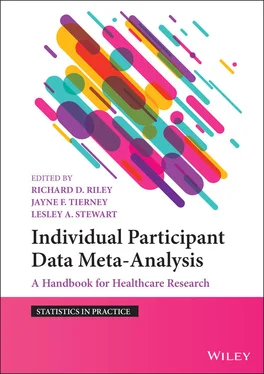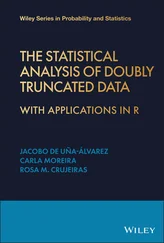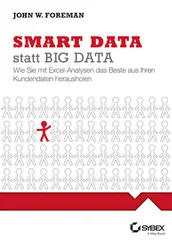Costs for any planned patient and public involvement and engagement (PPIE) should be included. These should capture reimbursement of travel and incidental expenses associated with attending meetings and include payment for time preparing for and attending these meetings. Payment for time may be made at a generally accepted rate, for example those recommended by INVOLVE in the UK (available at www.invo.org.uk/resource-centre/payment-and-recognition-for-public-involvement/). 80Because payment to individuals may have implications for their tax or welfare payments, a donation to a patient group or charity may be preferred. For costing purposes it is reasonable to assume that these would be the same amount as would be paid to individuals. Costs associated with advisory group meetings should also be accounted for, for all group members.
One aspect of a collaborative IPD meta‐analysis that can incur additional cost is hosting an in‐person meeting of trial investigators and advisory group members, at which results are first presented and discussed. As well as providing some incentive to participate, this can aid interpretation and help cascade and disseminate results ( Chapter 10). Past experience suggests that holding these as physical meetings works well, although they can be costly. Hosting results meetings alongside a major conference that trial investigators are likely to attend can reduce costs, although it may be more difficult to find a venue and keep participants present and engaged. Costing such a meeting will need to include venue and catering costs, and any accommodation and travel that will be supported through the project. Providing accommodation and subsistence for the duration of the IPD meeting is commonly done. Sometimes travel bursaries are offered, for example, to cover costs for those who would not be attending a main conference to which the IPD project meeting may be aligned. For a well‐funded project, travel (economy) may be supported for all those attending. Travel should always be reimbursed for PPIE members.
An alternative is to hold a virtual meeting. Although there is not yet a great deal of experience of how successful on‐line meetings are for presenting and discussing IPD meta‐analysis results, with ever‐improving virtual meeting software and with more individuals mindful of environmental sustainability and their carbon footprint, they may ultimately be the best option and help contain the costs of IPD meta‐analysis projects. Furthermore, following the 2020 SARS‐CoV2 pandemic and widespread use of online meeting software to host meetings and conferences, virtual meetings have become more commonplace.
Box 3.4Examples of research funder support for sharing clinical trial data
Cancer Research UK
https://www.cancerresearchuk.org/sites/default/files/cruk_data_sharing_policy_2017_final.pdf
Cancer Research UK regards it good research practice for all researchers to consider at the research proposal stage how they will manage and share the data they will generate. Therefore, Cancer Research UK requires that applicants applying for funding provide a data management and sharing plan as part of their application. This plan will be reviewed as part of the funding decision .
European Research Council
https://erc.europa.eu/sites/default/files/document/file/ERC_info_document‐Open_Research_Data_and_Data_Management_Plans.pdf
Grantees to provide information on how their data sets can be accessed, including the terms‐of‐use or the licence under which they can be accessed and re‐used, and information on any restrictions that may apply. It is also important to specify and justify the timing of data sharing. This could be, for example, as soon as possible after the data collection, or at the end of the project. For data that underlie publications it could be, for example, at the time of publication or pre‐publication .
National Institutes of Health
https://grants.nih.gov/grants/policy/data_sharing/
In NIH’s view, all data should be considered for data sharing. Data should be made as widely and freely available as possible while safeguarding the privacy of participants, and protecting confidential and proprietary data. To facilitate data sharing, investigators submitting a research application requesting $500,000 or more of direct costs in any single year to NIH on or after October 1, 2003 are expected to include a plan for sharing final research data for research purposes, or state why data sharing is not possible .
https://mrc.ukri.org/research/policies‐and‐guidance‐for‐researchers/open‐research‐data‐clinical‐trials‐and‐public‐health‐interventions/
The MRC expects valuable data arising from MRC‐funded research to be made available to the scientific community with as few restrictions as possible to maximise the value for research and for eventual patient and public benefit. Such data must be shared in a timely and responsible manner. The MRC is aware of the risks of fully open access to individual participant data (IPD), in particular the need to comply with participant consent and avoid inadvertent or deliberate identification of participants. The MRC expects researchers to follow the guidance in “Good Practice Principles for Sharing Individual Participant Data from Publicly Funded Clinical Trials” which details good practice principles and practical guidance on sharing IPD in a controlled way. A data sharing policy should be developed for each study .
The Patient‐Centered Outcomes Research Institute
https://www.pcori.org/about‐us/governance/policy‐data‐management‐and‐data‐sharing
PCORI is committed to the principles of open science, particularly maximizing the utility and usability of data collected in research projects that PCORI funds. PCORI seeks to encourage scientifically rigorous secondary use of clinical research data to foster scientific advances that will ultimately improve clinical care and patient outcomes. As such, PCORI believes it is important for our research awardees to systematically create and preserve research data and data documentation in order to facilitate data sharing .
https://wellcome.ac.uk/grant‐funding/guidance/clinical‐trials‐policy
When you register you must include a data sharing plan as part of the trial registration, in line with the 2017 International Committee of Medical Journal Editors (ICMJE) requirements on data sharing statements for clinical trials .
Source: Lesley Stewart.
There are three main funding routes: funding as part of a core research programme, investigator‐led applications and commissioned calls from funders. Each of these has its own advantages and challenges.
It can be difficult to predict how much IPD will be available, what condition it will be in when it arrives, or how much time will be needed to negotiate collaboration and receive IPD. It is therefore perhaps most straightforward for IPD meta‐analysis projects to be funded as part of a core evidence synthesis research programme (or unit), which allows the research team to work across different IPD meta‐analyses (and other projects) running to differing schedules and to exercise flexibility on start and end dates. A similar approach is to embed the IPD project (undertaken by a suitably experienced and qualified team) within a larger long‐term programme of research in a particular topic area.
For investigator‐led applications for a single IPD meta‐analysis project, whilst time can be taken to build the project scope, explore possible collaborations and assess feasibility, a challenge may be in explaining the rationale for why an IPD synthesis is required rather than a standard review of existing aggregate data ( Chapter 2). As IPD projects are rare relative to standard systematic reviews, peer reviewers and funders may be unfamiliar with what they entail, and so careful exposition of methods and the benefits that the IPD approach will bring is essential. Detailed costs and their justification will also be needed. A survey of members of the Cochrane IPD Meta‐Analysis Methods Group exploring barriers and successes in applying for funding for IPD meta‐analysis projects identified six key themes as being important to funding applications and how they were received by funders. 81These were:
Читать дальше












